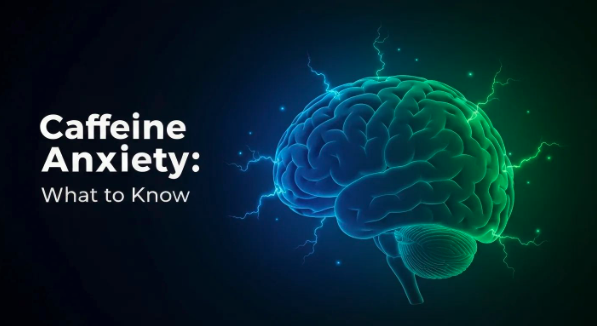Am I Depressed or Lazy?
Wondering, "Am I depressed or lazy?” Discover key signs and insights to understand your feelings better.

Understanding Depression and Laziness
Gaining clarity on the distinctions between depression and laziness is crucial for individuals questioning their emotional state. It's essential to recognize the symptoms, contributing factors, and the overall impact these conditions can have on daily life.

Depression vs. Laziness: Differentiating Symptoms
Depression is characterized by a range of symptoms, including a persistent lack of interest in activities, extreme fatigue, and feelings of hopelessness. These symptoms can often be mistaken for laziness; however, the two are fundamentally different. Laziness is related to behavior and motivation, whereas depression is a mental health condition diagnosed by professionals [1].
Research indicates that individuals dealing with laziness may still possess the ability to perform necessary tasks but lack the initiative to do so. Conversely, those experiencing depression face barriers that significantly hinder their capacity to engage in daily activities, regardless of their willingness or desire to do so.
ConditionSymptomsDiagnosis CriteriaDepressionLack of interest, fatigue, sadnessMust meet specific DSM-5 criteriaLazinessReluctance to perform tasksNo official diagnostic criteria
Factors Contributing to Depression
Depression arises from a complex interplay of several factors. A combination of life stressors, genetic predispositions, and biological changes can all contribute to the onset of depressive disorders. In some cases, underlying medical conditions like heart disease, cancer, or diabetes may also play a role [1].
It is important to highlight that depression affects various facets of an individual's daily life, often leading to more severe consequences than those associated with laziness. People suffering from depression typically require comprehensive treatment approaches, including medications, therapeutic interventions, and support from their communities and loved ones.
Impact on Daily Life
The impact of depression on daily living can be profound. It influences relationships, work performance, and overall well-being. Many individuals with depression struggle to complete even simple tasks, leading to feelings of worthlessness and frustration. The pervasive nature of these symptoms can disrupt routine, diminish productivity, and erode quality of life.
In contrast, laziness, though it may hinder productivity, tends to have less severe and more isolated impacts. People labeled as lazy can usually engage in activities when they choose to, differentiating their situation from that of someone genuinely experiencing the incapacitating effects of depression. Understanding this distinction is vital for those questioning, "Am I depressed or lazy?"
For those seeking more information on mental health issues, consider exploring topics such as male depression: breaking the silence and stigma and exercise as a treatment for depression.
Seeking Help and Treatment
Addressing feelings related to depression requires acknowledging the importance of seeking appropriate help and exploring various treatment options available.
Treatment Approaches for Depression
Treatment for depression typically involves a combination of psychotherapy and medication. Most healthcare providers utilize these methods to help individuals manage their symptoms effectively. Antidepressants usually take between 4 to 8 weeks to begin showing results, and it is essential not to discontinue medication without consulting a healthcare provider.
In some cases, individuals may experience treatment-resistant depression. For these individuals, doctors might consider brain stimulation therapy if traditional psychotherapy and medications prove ineffective. Different brain stimulation techniques include:
Treatment TypeDescriptionElectroconvulsive Therapy (ECT)A procedure that sends small electrical currents through the brain to treat severe depression. More details can be found in our article on electroconvulsive therapy (ECT).Transcranial Magnetic Stimulation (TMS)A non-invasive treatment that uses magnetic fields to stimulate nerve cells in the brain. For more information, visit transcranial magnetic stimulation (TMS) for depression.Psychedelic-Assisted TherapyResearch into the use of psychedelics for treating depression is ongoing. For details, explore our article on psychedelic-assisted therapy for depression: current research and potential.
Understanding these options can help individuals make informed decisions regarding their mental health.
Seeking Professional Guidance
Reaching out to a mental health professional or healthcare provider is a crucial step for individuals experiencing feelings of worthlessness or struggling with self-esteem. These professionals offer support and guidance tailored to individual needs [3].
Online therapy is also a viable option for those seeking accessible and often affordable help for mental health concerns. This format allows individuals to connect with therapists remotely, making it easier to receive necessary support during challenging times. Embracing these resources can significantly enhance recovery and provide valuable coping strategies.
Individuals should not hesitate to seek help when questioning their feelings, leading them to ask, "am I depressed or lazy?" Understanding available treatment options is vital in navigating this mental health journey.
Addressing Feelings of Worthlessness
Feelings of worthlessness are frequently a symptom of depression, but they can also be influenced by low self-esteem, neglect, abuse, trauma, or challenging situations that disrupt a person's self-image [4]. Recognizing these feelings is key to addressing them effectively.
Recognizing Worthlessness Symptoms
Identifying symptoms of worthlessness can help individuals understand their emotional state. Common signs include:
These symptoms may arise from various factors such as childhood trauma or negative experiences. For example, research indicates that childhood experiences of neglect, abuse, or constant criticism can foster feelings of worthlessness later in life.
Symptoms of WorthlessnessDescriptionNegative Self-TalkPersistent thoughts labeling oneself as "not good enough"Social WithdrawalAvoiding interactions due to fear of judgementLow MotivationLack of drive to pursue activities or goalsSelf-CriticismHarshly evaluating one's actions and abilities
Coping Mechanisms and Support
When feelings of worthlessness arise, there are several coping mechanisms and sources of support available. Implementing these strategies can help build resilience and improve self-esteem:
Support groups can also offer valuable community resources where individuals can share experiences and feelings in a safe environment. If feeling overwhelmed, reaching out to trusted friends or family can be an important aspect of maintaining emotional health.
Recognizing, addressing, and seeking assistance for feelings of worthlessness can be a transformative step toward understanding whether one is dealing with depression or simply feeling lazy.
Anhedonia and Its Relation to Depression
Exploring Anhedonia Symptoms
Anhedonia is characterized by a diminished ability to experience pleasure from activities that were once enjoyable. It is a core symptom of major depressive disorder, but it can also manifest in various mental health disorders. There are two main types of anhedonia: social anhedonia, which refers to a lack of interest in social activities, and physical anhedonia, which involves a reduced enjoyment in physical sensations, such as eating or engaging in pleasurable activities [6].
Symptoms of anhedonia can include:
This inability to experience pleasure can significantly affect a person's quality of life. In many cases, those struggling with anhedonia may feel isolated and disconnected from their surroundings.
Treatment Options for Anhedonia
Treating anhedonia can be a complex process, as it often requires addressing the underlying mental health issues, such as depression. Some potential treatment options include:
Treatment OptionDescriptionTalk therapyEngaging in therapeutic conversations to identify and address negative thoughts and behaviors.Prescription medicationsAntidepressants or antipsychotics that can help manage depression and related symptoms.Electroconvulsive therapy (ECT)A treatment option for severe depression when other treatments haven't been effective [8].Transcranial magnetic stimulation (TMS)A non-invasive procedure that can help alleviate depression and reduce symptoms of anhedonia.Vagus nerve stimulation (VNS)An option for treatment-resistant depression that involves stimulating the vagus nerve.Lifestyle modificationsIncorporating regular exercise, proper nutrition, and adequate sleep can aid in managing symptoms.
If anhedonia has developed due to substance misuse or chronic pain, addressing those underlying issues is crucial for treatment. Seeking help from a doctor or mental health professional can provide valuable support and guidance for those experiencing anhedonia. Typically, as the underlying conditions are managed, symptoms of anhedonia can begin to dissipate, allowing individuals to reconnect with pleasures in life.
Causes and Risk Factors
Understanding the underlying causes and risk factors associated with depression can help differentiate whether one is feeling depressed or simply lazy. Various influences can lead to the onset of depression, impacting individuals differently.
Factors Influencing Depression
Depression is more severe than laziness and impacts various aspects of daily life. It usually necessitates medical treatment, including medications, therapy, and family and community support. Several factors may heighten the risk of depression:
Factor TypeExamplesBiologicalGenetics, family historyHealth ConditionsDiabetes, heart diseaseHormonal ChangesPregnancy, menopauseSocial FactorsStressful events, limited resourcesPsychologicalNegative thoughts, avoidance, substance use
Symptoms related to depression can vary greatly among individuals and may include persistent feelings of sadness, hopelessness, irritability, changes in appetite or sleep patterns, lack of interest in activities, and thoughts of self-harm or suicide. These symptoms can significantly disrupt daily functioning and lead to emotional distress [2].
Risk Factors for Developing Depression
Various elements can contribute to the development of depression, including experiences from childhood. Repeated criticism during childhood may establish negative core beliefs about oneself, leading to feelings of worthlessness [3]. Unlike fleeting sadness, depression is a mood disorder characterized by:
Understanding these risk factors can facilitate early identification and support for those who may be struggling. For more details on dealing with emotional challenges, consider reading about high-functioning depression: when depression is hidden or the role of neurotransmitters in depression.
Overcoming Motivation Challenges
Motivation vs. Laziness
Understanding the difference between motivation and laziness is crucial in addressing feelings of inertia. Motivation is the desire that drives a person to act, whereas laziness is the visible symptom of a lack of motivation. If an individual feels unmotivated, they are unlikely to take action or complete tasks [11].
Low motivation can stem from various factors, including depression. Recognizing that feelings of laziness often relate to underlying motivational issues rather than a character flaw is an essential step toward overcoming these feelings.
Strategies to Boost Motivation and Combat Laziness
Several strategies can help improve motivation and combat feelings of laziness:
StrategyDescriptionBehavior ChangeSmall changes in behaviors can result in significant health and life improvements. (Positive Psychology)Theory of Planned BehaviorThis theory emphasizes that behavior is influenced by intention, attitudes, social norms, and perceived control. (Positive Psychology)Social Cognitive TheoryProposed by Bandura, it involves learning behaviors by observing others and includes the importance of self-efficacy. (Positive Psychology)Transtheoretical ModelThis model outlines six stages of behavior change, allowing for targeted interventions based on an individual’s progress. (Positive Psychology)COM-B ModelFocuses on capability, opportunity, and motivation as essential components influencing behavior change. (Positive Psychology)
Implementing these strategies can create a pathway to improved motivation. Recognizing and addressing the root causes of low motivation can lead to better outcomes in daily life. For individuals wondering, "am I depressed or lazy?" it's essential to explore these dynamics thoughtfully.
References
[2]:
[3]:
[4]:
[5]:
[6]:
[7]:
[8]:
[9]:
[10]:
[11]:
More Resources
A team ready to start your journey.
Get in touch — today.
We are a safe space – a haven for exceptional individuals to receive discreet, personalized, in-person treatment and care.
.avif)

.webp)








